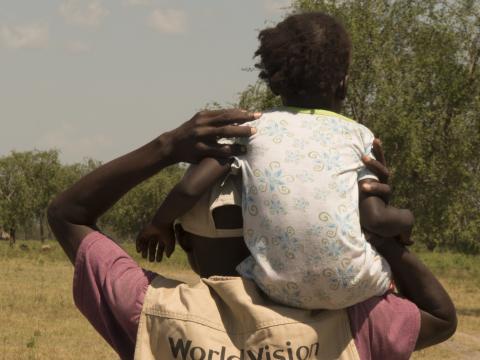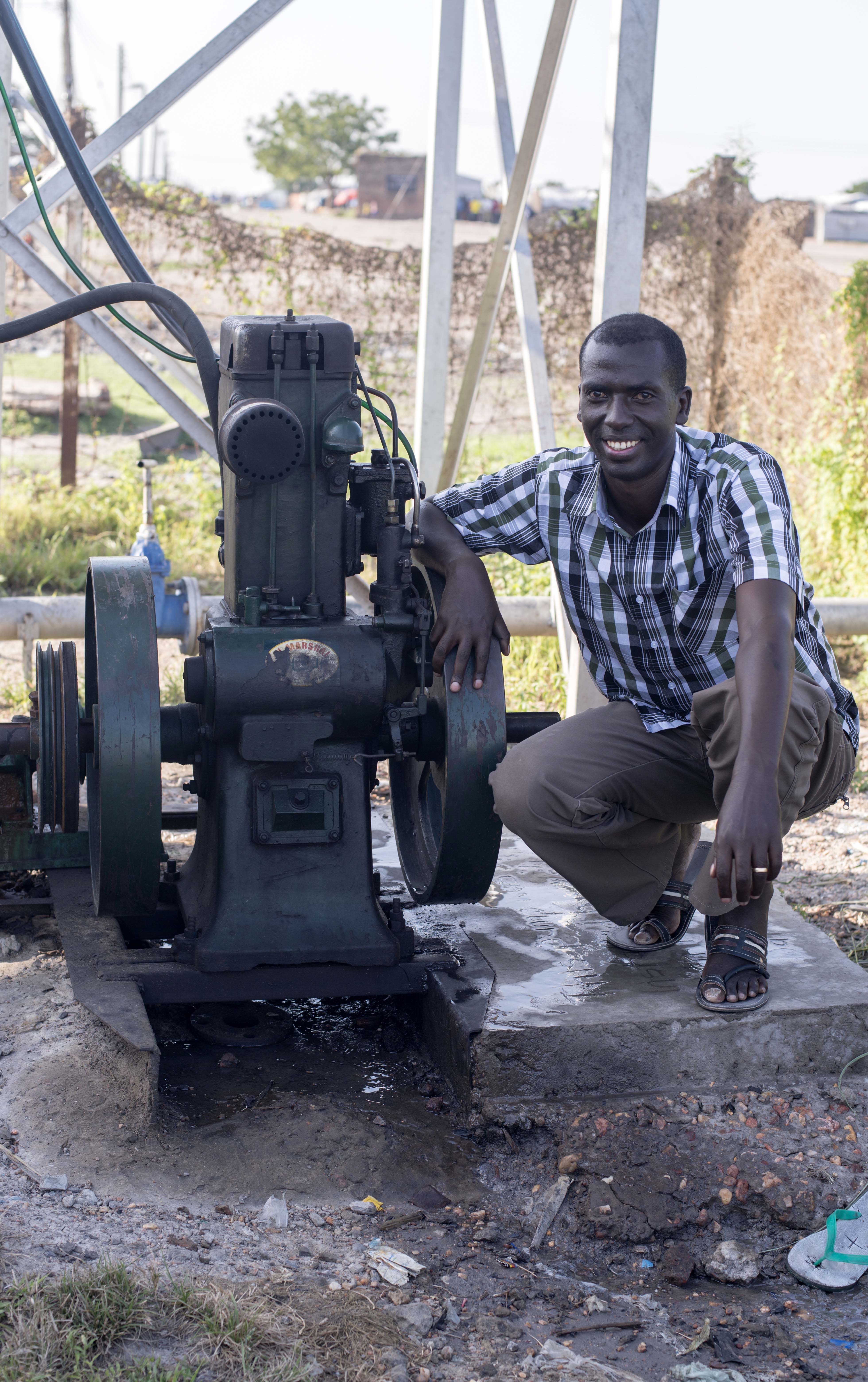Friends of Mine

The more I travel, the more I realise that people are pretty much the same everywhere, but there are some places that attract extremes and experienced aid workers will tell you that South Sudan is the most challenging environment they have ever worked in. Perhaps as a consequence of this, it seems to attract some of the most exceptional people I have ever met – some of whom I am proud to call friends.
Samuel is a trooper. He is at the frontline of World Vision’s fight against childhood malnutrition and, in his quest, has measured the upper arm girth of thousands of children. It’s a simple test called MUAC or Middle Upper Arm Circumference and it is a simple way of determining if a child is underweight for their age. Samuel and his colleagues will drive hours on rough roads, take boat rides at dawn, walk an hour or more in 40 degree heat and plow through swamps on a quad bike in order to reach malnourished children. He and his colleagues keep meticulous records of each child. Week after week they return to the same locations to see the children and to measure their little arms again and again.
“13 point one - This one has improved,” he says to his colleague Isaac who takes note of the measurement in a ledger. “This one is small since last time,” he says after measuring another child. Each clinic they conduct is also attended by a local health worker who will follow-up on cases like this. Children who suffer from acute or long-term malnutrition face developmental disadvantages that may affect them for the rest of their lives. Finding and treating it not only saves lives in the short term, but can help the child have a better life over the long term.
Jackson rarely speaks to children, but his contribution to their lives is just as great, because Jackson is obsessed with clean water - obsessed. Many of his sentences start with the words, “We know from Physics…” he will continue to explain a complex 12 step water purification process which few people understand completely, but what anyone can understand is the value of a system that provides clean water to 20,000 people everyday. While Jackson can name different types of coagulant and has memorised the concentration of chlorine used in different water treatment systems he seems oblivious to the wider implications of his work.
Five years ago, almost 2 million children died every year from water borne diseases. In the last year, that number has dropped to below 600,000 and with people like Jackson on the job, that number will no doubt drop even further in coming years. Armed with a Masters in Science of Water Source Engineering, Jackson is part of World Vision’s water SWAT team - water geniuses who can put together a treatment system in less than a week – at most it can supply safe water to 4,000 people a day. Every week, the SWAT team looks for communities who need clean water where they can these systems. “One of the good things about a SWAT system is that you can move it around. We could take this down and move it if the community had to move,” says Jackson standing next to an ‘onion tank’ which, with it’s malleable rubber shell, actually looks like an enormous yellow onion.
John works in the same places as Jackson and Samuel but cares for an more intangible need – the need for safety. John is a child protection coordinator and goes from house to house in Kodok checking on the welfare of children. “If we see one who is looking hungry, we tell the food team,” he says. “If the child is not in school, we talk to the parent and try to find out why they are out of school,” he says. He describes World Vision as branches on a tree. In this way, the different programs within World Vision South Sudan work together.
World Vision has almost 900 staff in South Sudan and 90 percent of these people are South Sudanese.
Often, it is these staff who work the hardest, with the most determination and their will to make their country move forward is one of the biggest motivations for working in South Sudan.
